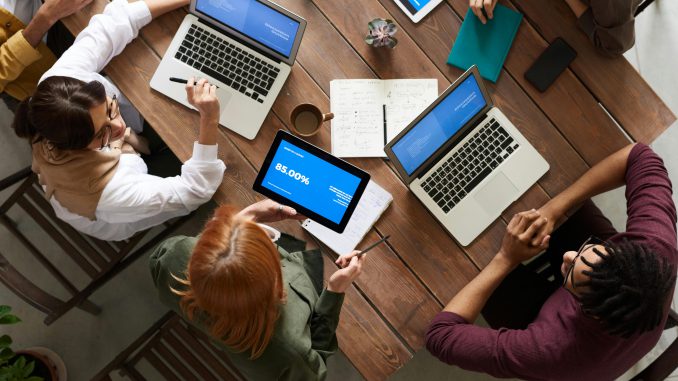
A ‘Common Ground’ post.
What is it?
Group work is where students work together to share information, answer a question or solve a problem.
Why do it?
Group work aims to give students collaborative skills and can provide a less exposed space for them to share thoughts and ideas. As well as supporting the building of rapport among students and between students and educators (1), group work can help to create a genuine, honest, learning community; encourage marginalised students to engage and contribute; and are a useful way to gauge student understanding. (2)
“Group work is a good way of activating students who would usually be less confident to speak up in front of the whole group. Every time I use small groups I see that happening, that students who tend to be a bit more reserved a bit more quiet, they open up, they feel much more confident to speak in smaller groups.” (Dr A, International Relations)
How is it set up?
Group work can comprise a simple peer discussion in twos, threes or a larger group; a jigsaw framework where each student undertakes a reading or task and feeds back to the group; or a more complex presentation or project. With peer discussions, the educator tends to move from group to group, sometimes just listening in, at other times praising or prompting further discussion. (3)
“They are an opportunity for me to assess how much the students are getting, trying to push their understanding, helping them to push the boundaries a little bit of what they know. So a big part of that is you get them talking and you sit and you listen.” (Mr C, King’s Foundations)
“I get them to work on collaborative documents a lot and they might be doing a peer review or a review in groups. I think that’s quite a good way of getting to know each other. There’s a sort of honesty about being a critical friend as opposed to just saying “oh that’s very nice” and being all polite about it, I think that’s important for building rapport.” (Ms D, King’s Foundations)
Common Ground
The Common Ground research project set out to source rapport-building activities from our King’s colleagues; observe these activities in the classroom; and survey educators and students about their efficacy. We have collated some of our findings in a series of blog posts on the King’s Active Learning site. These posts are designed to enable busy educators to easily find tried and tested rapport-building resources. You can read the full report here: Common Ground Report
Linked posts
Using Icebreakers to Build Rapport
About the Common Ground Project
References
- Frisby, B.N. and Martin, M.M., 2010. Instructor–student and student–student rapport in the classroom. Communication Education, 59(2), pp.146-164.
- Samuel, V. and Vogel, M., (2022) Common Ground Project, King’s Academy p.8
- Samuel, V. and Vogel, M., (2022) Common Ground Project, King’s Academy p.9

Leave a Reply